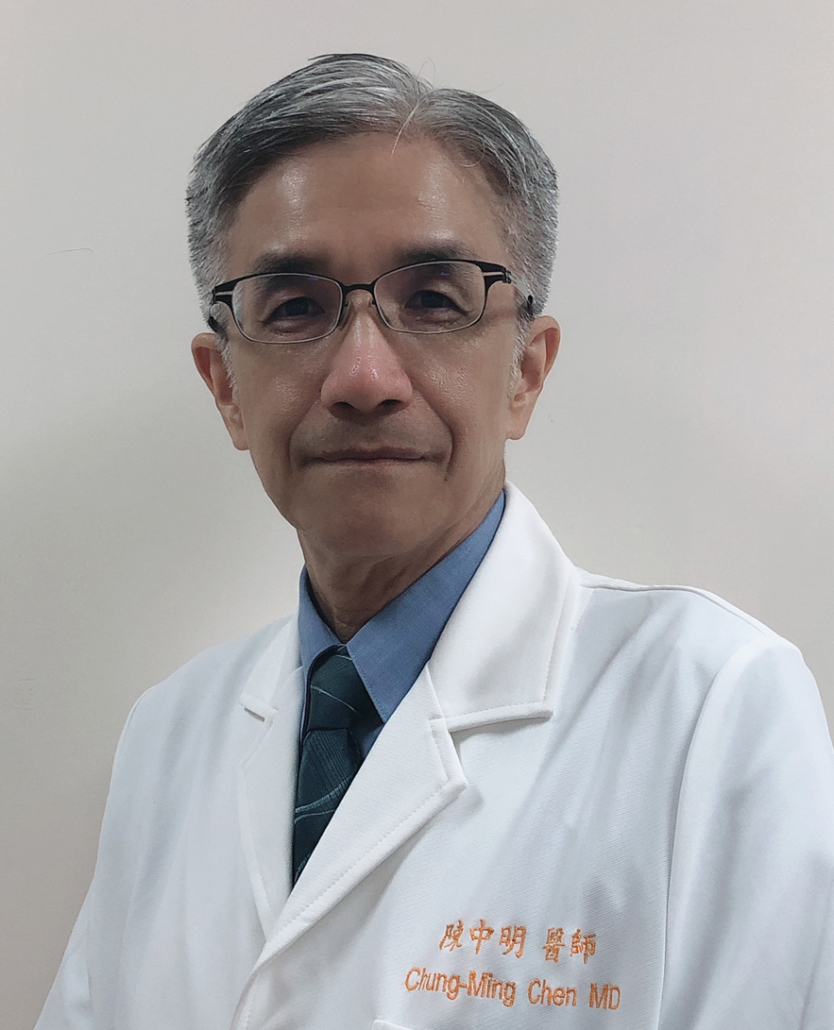Saving Kids with Stem Cells
Dr. Chung-Ming Chen

Director and Professor,
Department of Pediatrics, Taipei Medical University
Preterm birth is the leading cause of death for newborns. Although survival rates have improved for babies born before the 37th week, their immature lungs remain vulnerable to inflammation, infection, and sepsis. Standard procedures using steroids and mechanical ventilation can cause further oxidative stress and lead to bronchopulmonary dysplasia (BPD). Children with BPD may suffer from recurrent lung infection and require extended stays in the ICU, and often see decreased lung function and higher susceptibility to infection as they age.
As treatments for prematurely born infants have advanced, so has the incidence of BPD, a problem Director of the TMU Hospital’s Department of Pediatrics Dr. Chun-Ming Chen has watched grow in a career spanning close to 35 years. But standard treatments, according to Dr. Chen, are lacking ineffectiveness.
“Old treatments,” including vitamin A, erythromycin, and steroids, “aren’t supported by evidence,” says Dr. Chen, who has his sights set on a novel and promising treatment. Harvested from umbilical cords, mesenchymal stromal cells (MSCs) are stem cells able to proliferate and differentiate into a variety of tissue. Importantly for cells administered directly have the ability to enhance lung development and reduce pulmonary hypertension.
Dr. Chen first pursued an interest in stem cells as a Neonatology Research Fellow at Harbor-UCLA’s School of Medicine. After a year studying, Dr. Chen returned to TMU and began experimenting on rats. Dr. Chen has been working with stem cells ever since, and is the only researcher in Taiwan working with stem cells in a rat model of BPD.
With lung development closely matching that of humans (and whose space requirements are much lower than sheep), rats were a clear choice for modeling lung disease in humans. In studies he’s published over the past several years, Dr. Chen has used his model to show the efficacy of MSCs at reducing lung inflammation and attenuating BDP. He’s also worked out the MSCs’ protein signaling pathways on lung tissue in rats, but the most important goal “… is the use in the human body. The future study should focus on dosage and time of administration.”
Being a pioneer of new – and sometimes poorly understood – treatments can bring challenges, says Dr. Chen. Despite a similar treatment from a Korean team showing no adverse effects at two-year follow-up (the American team has yet to publish their results), regulatory hurdles can slow the process of recruiting subjects. Until there is more data, the TFDA (Taiwan Food and Drug Administration) currently requires a full report one year after treatment, and only allows one patient to be treated at a time. On top of that, treatment approval can be delayed until after patients are extubated, at which point MSCs can only be administered intravenously.
“I think animal studies are already enough for beginning human studies. But it’s hard for clinicians, it’s tough to meet the requirements of the TFDA.” says Dr. Chen. While a conservative pace focusing on safety may be understandable, he looks forward to more easily enrolling the patients at the time they’ll see the greatest benefits from stem cell treatment.
Students interested in becoming stem cell pioneers in a rapidly developing field can get involved through the CCTRM’s (Center for Cell Therapy and Regeneration Medicine) international PhD program. Besides undertaking pioneering research with experienced researchers, gaining access to CCTRM’s world-class animal facilities and the support of TMU’s Office of Business Development, international PhD students build a network of connections with the international medical community. And for local students and faculty the chance to work in a culturally diverse environment for academic and clinical advancement is “a great thing for our colleagues,” says Dr. Chen.
For interviews or a copy of the paper, contact Office of Global Engagement via global.initiatives@tmu.edu.tw.








